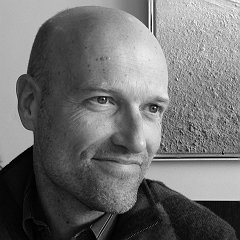This talk is about our experience of teaching bachelor and masters students the implementation of programming languages and operating systems using the selfie system. Selfie is a self-contained 64-bit, 10-KLOC implementation of (1) a self-compiling compiler written in a tiny subset of C called C* targeting a tiny subset of 64-bit RISC-V called RISC-U, (2) a self-executing RISC-U emulator, (3) a self-hosting hypervisor that virtualizes the emulated RISC-U machine, and (4) a prototypical symbolic execution engine that executes RISC-U symbolically. Selfie can compile, execute, and virtualize itself any number of times in a single invocation of the system given adequate resources. Selfie leverages the synergy of integrating compiler, target machine, and hypervisor in one self-referential package while orthogonalizing bootstrapping, virtual and heap memory management, emulated and virtualized concurrency, and even replay debugging and symbolic execution. We provide an overview of the system and then discuss our teaching experience including first steps with a prototypical self-grader we are currently working on that allows students to grade solutions themselves during development.
This is joint work with A. Abyaneh, M. Aigner, S. Arming, C. Barthel, S. Bauer, T. Hütter, A. Kollert, M. Lippautz, C. Mayer, P. Mayer, C. Moesl, S. Oblasser, C. Poncelet, S. Seidl, A. Sokolova, and M. Widmoser.
Christoph Kirsch is Professor at the Department of Computer Sciences of the University of Salzburg, Austria. He received his Dr.Ing. degree from Saarland University in 1999 while at the Max Planck Institute for Computer Science in Saarbrücken, Germany. From 1999 to 2004 he worked as Postdoctoral Researcher at the Department of Electrical Engineering and Computer Sciences of the University of California, Berkeley. He later returned to Berkeley as Visiting Scholar (2008-2013) and Visiting Professor (2014) at the Department of Civil and Environmental Engineering. His research interests are in concurrent programming, memory management, virtualization, and formal verification. Dr. Kirsch co-invented embedded programming languages and systems such as Giotto, HTL, and the Embedded Machine, and more recently co-designed high-performance, multicore-scalable concurrent data structures and memory management systems. He co-founded the International Conference on Embedded Software (EMSOFT) in 2001 and served as ACM SIGBED chair from 2011 until 2013. He has been IEEE TCAD and ACM TODAES associate editor, and is ACM Distinguished Speaker since 2017.
Mon 5 NovDisplayed time zone: Guadalajara, Mexico City, Monterrey change
10:30 - 12:00 | |||
10:30 30mTalk | Take a Selfie in Class SPLASH-E Christoph Kirsch University of Salzburg | ||
11:00 30mTalk | A Framework for Code-Level Tracing of Map-Based Algorithm Visualizations SPLASH-E File Attached | ||
11:30 30mTalk | Early Experience: Teaching the Basics of Functional Language Design with a Language Type Checker SPLASH-E Matteo Cimini University of Massachusetts Lowell File Attached | ||
